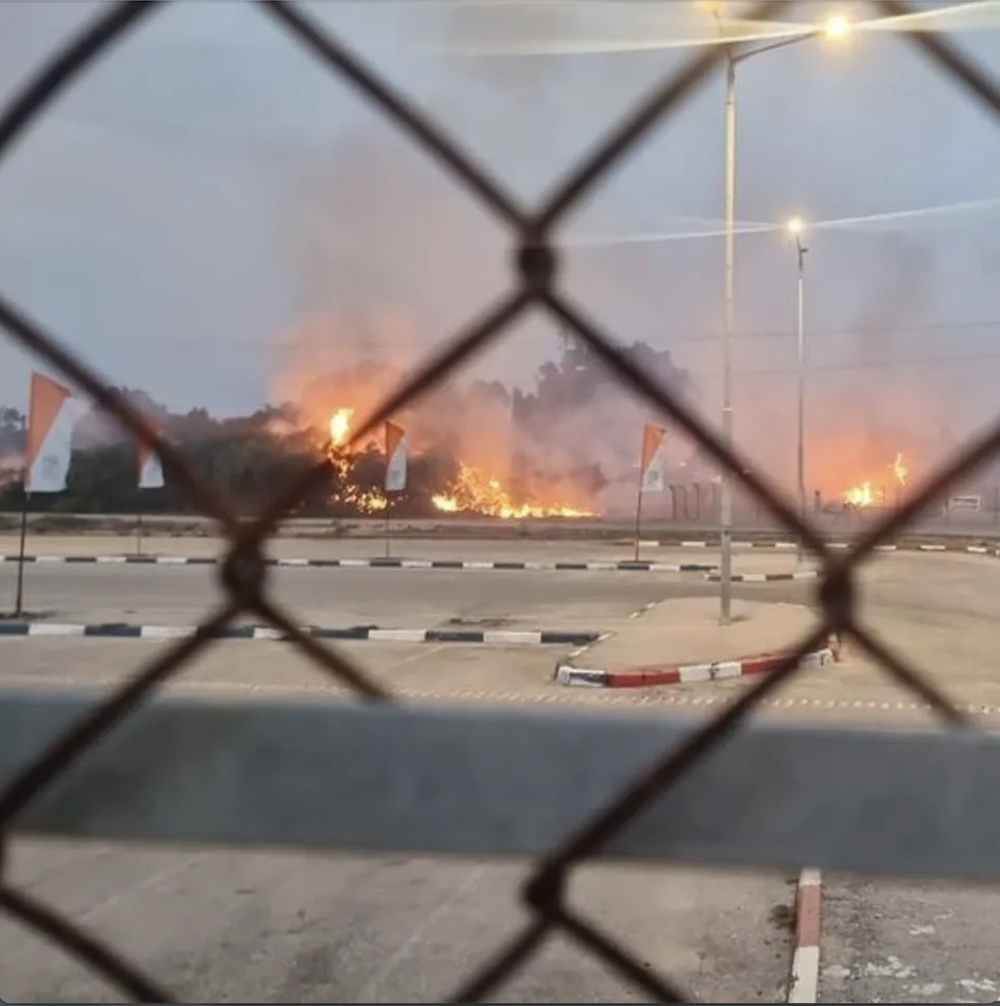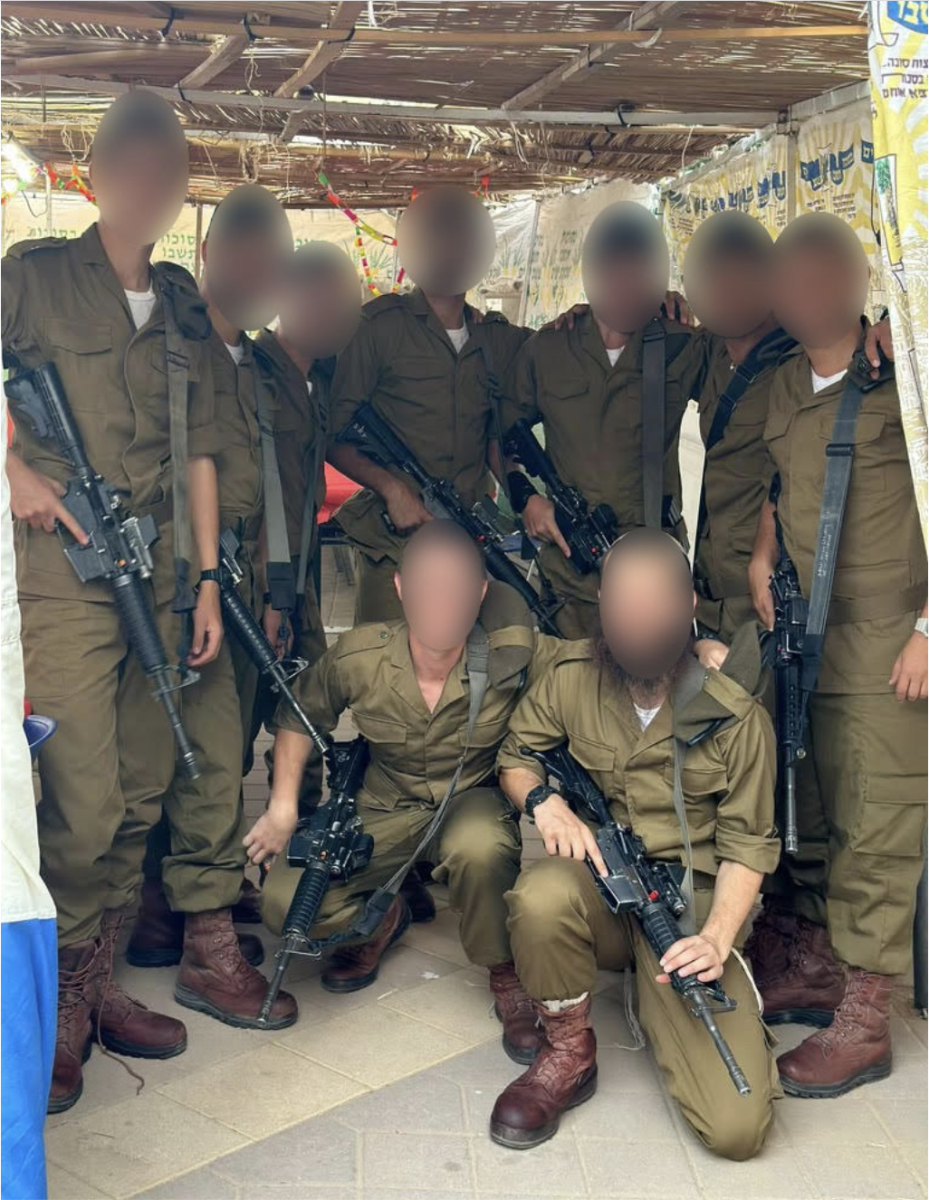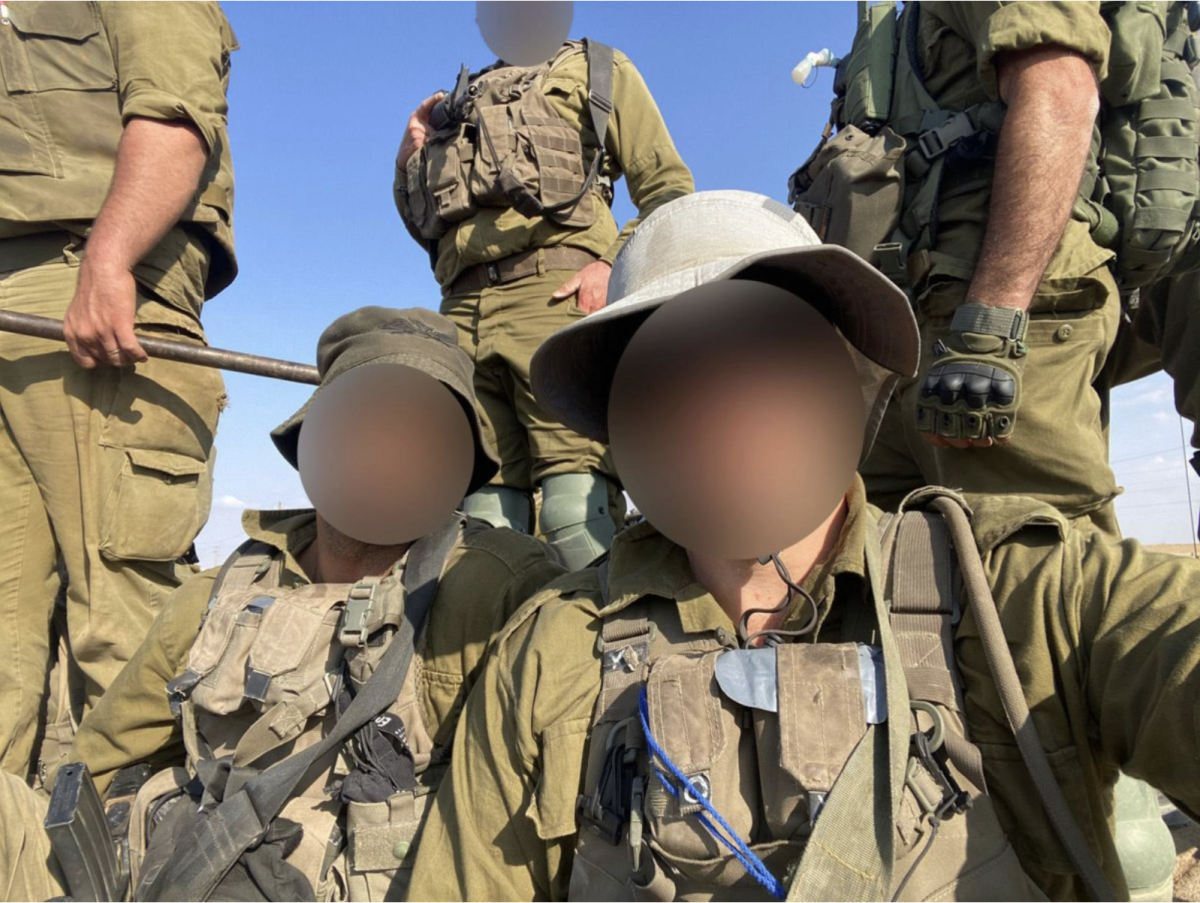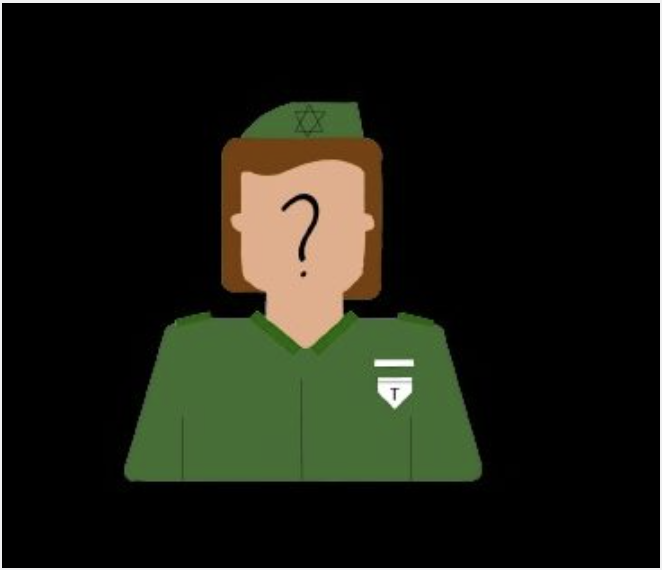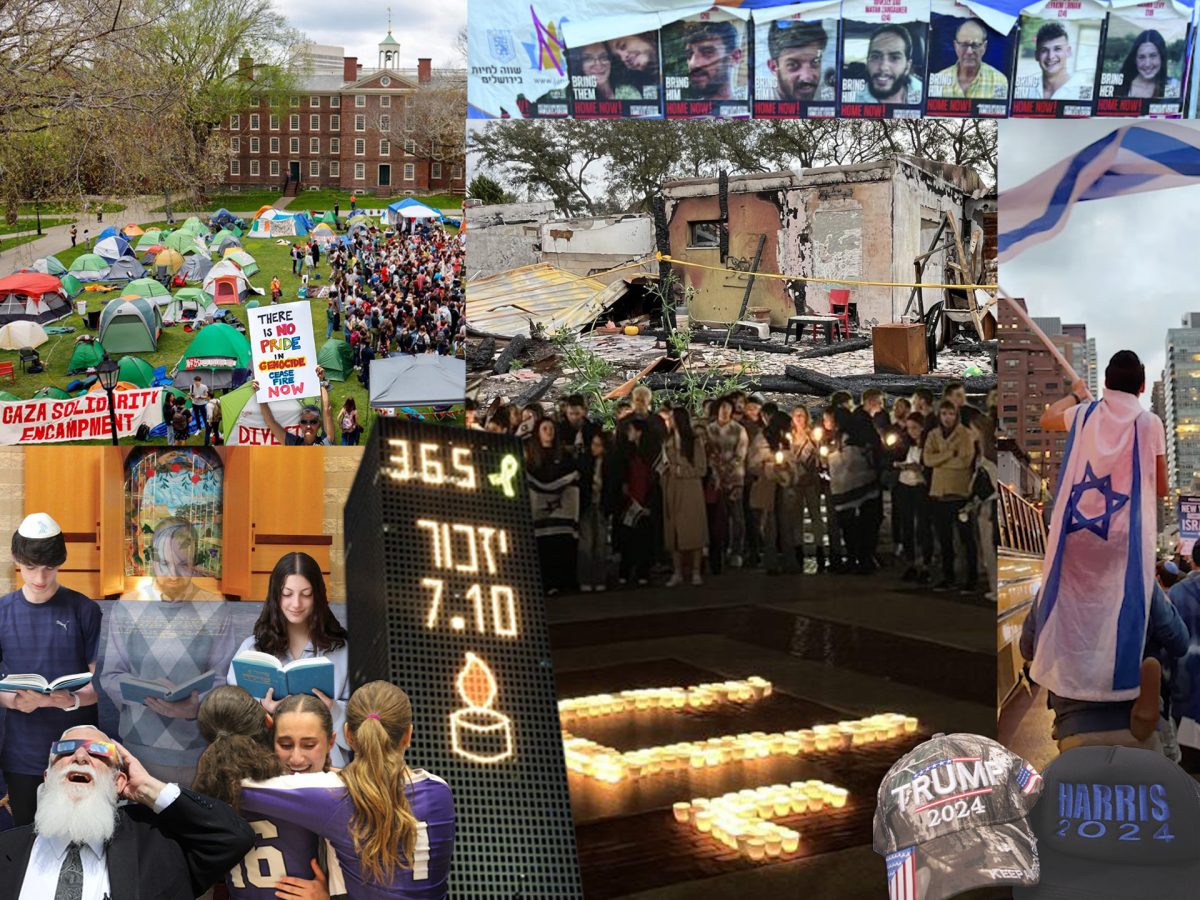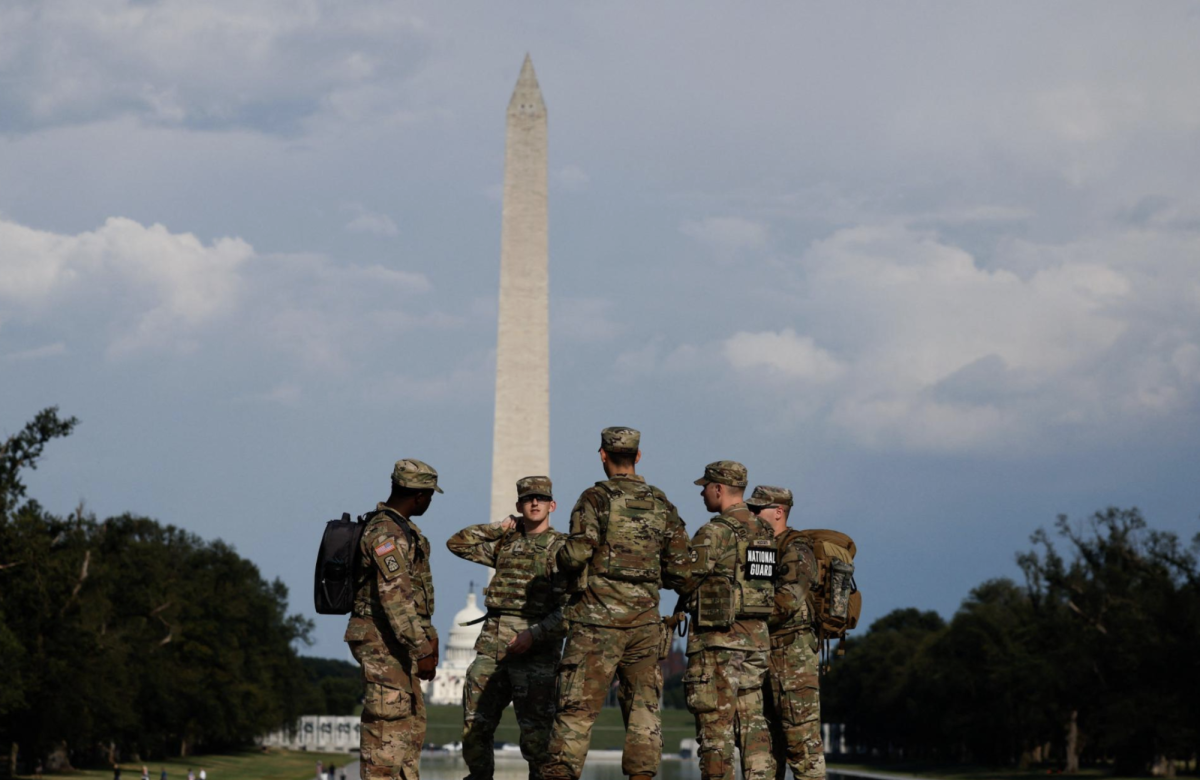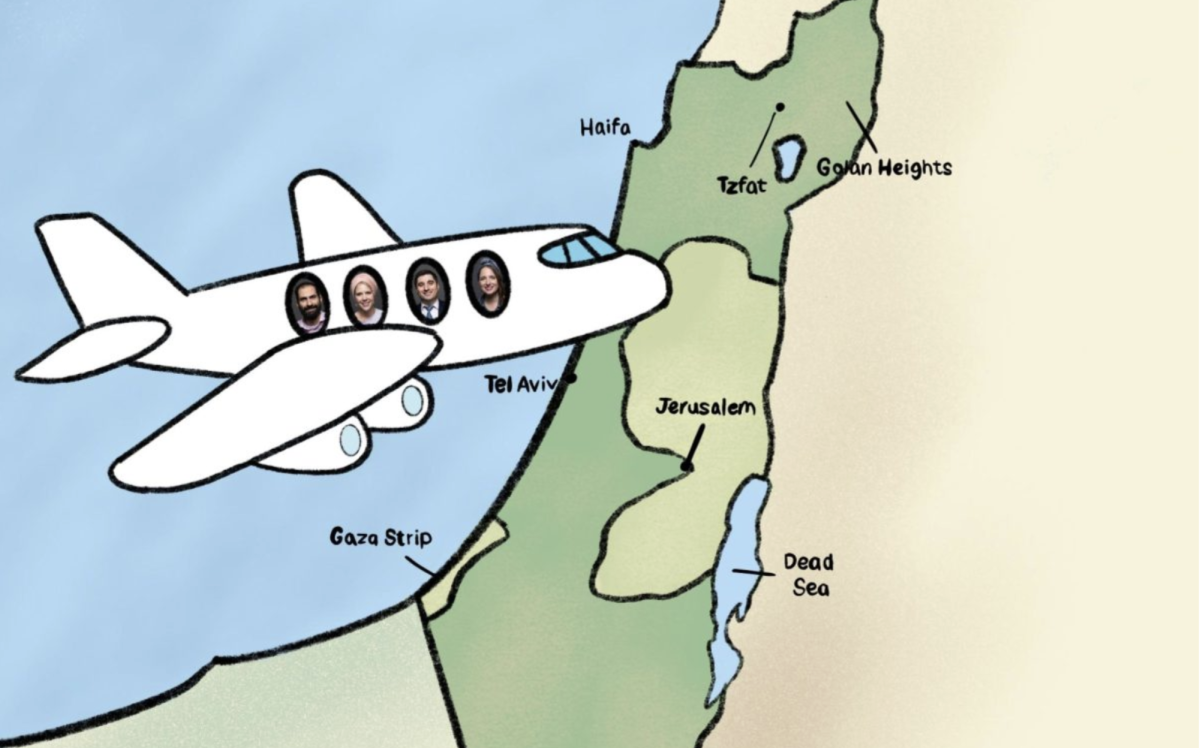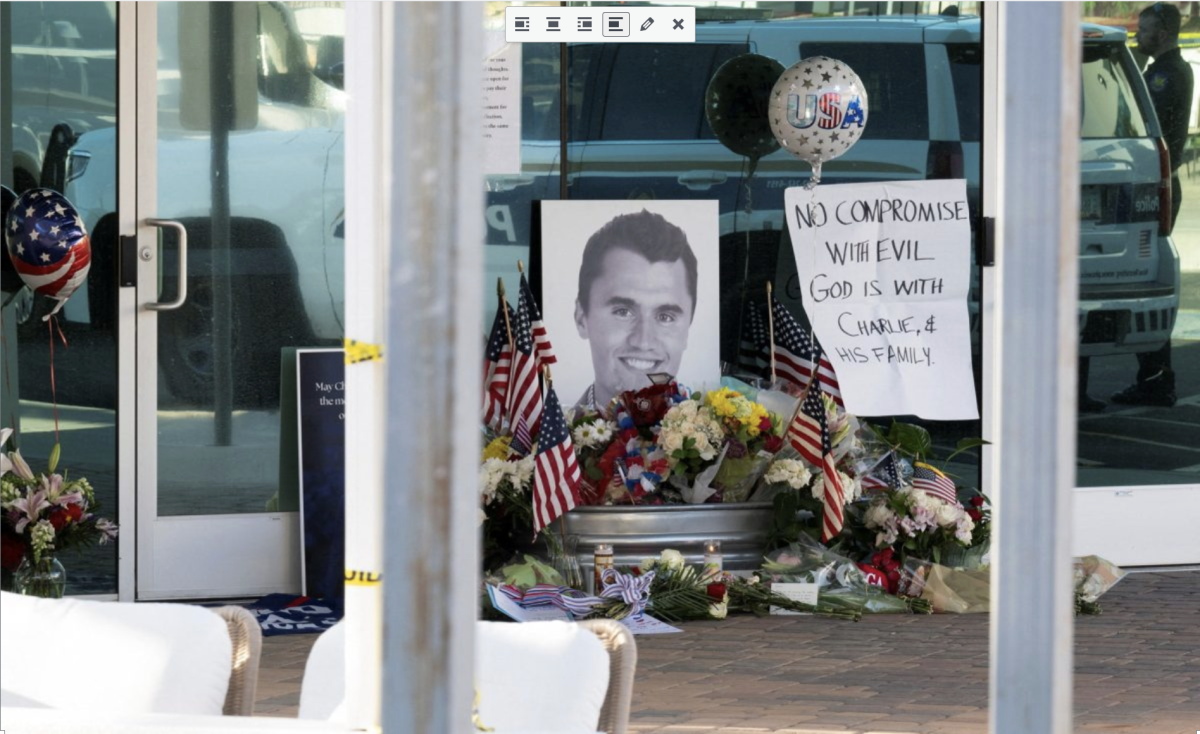JOINING THE FIGHT: From trainees to reservists, Shalhevet alumni suddenly called to war against Hamas
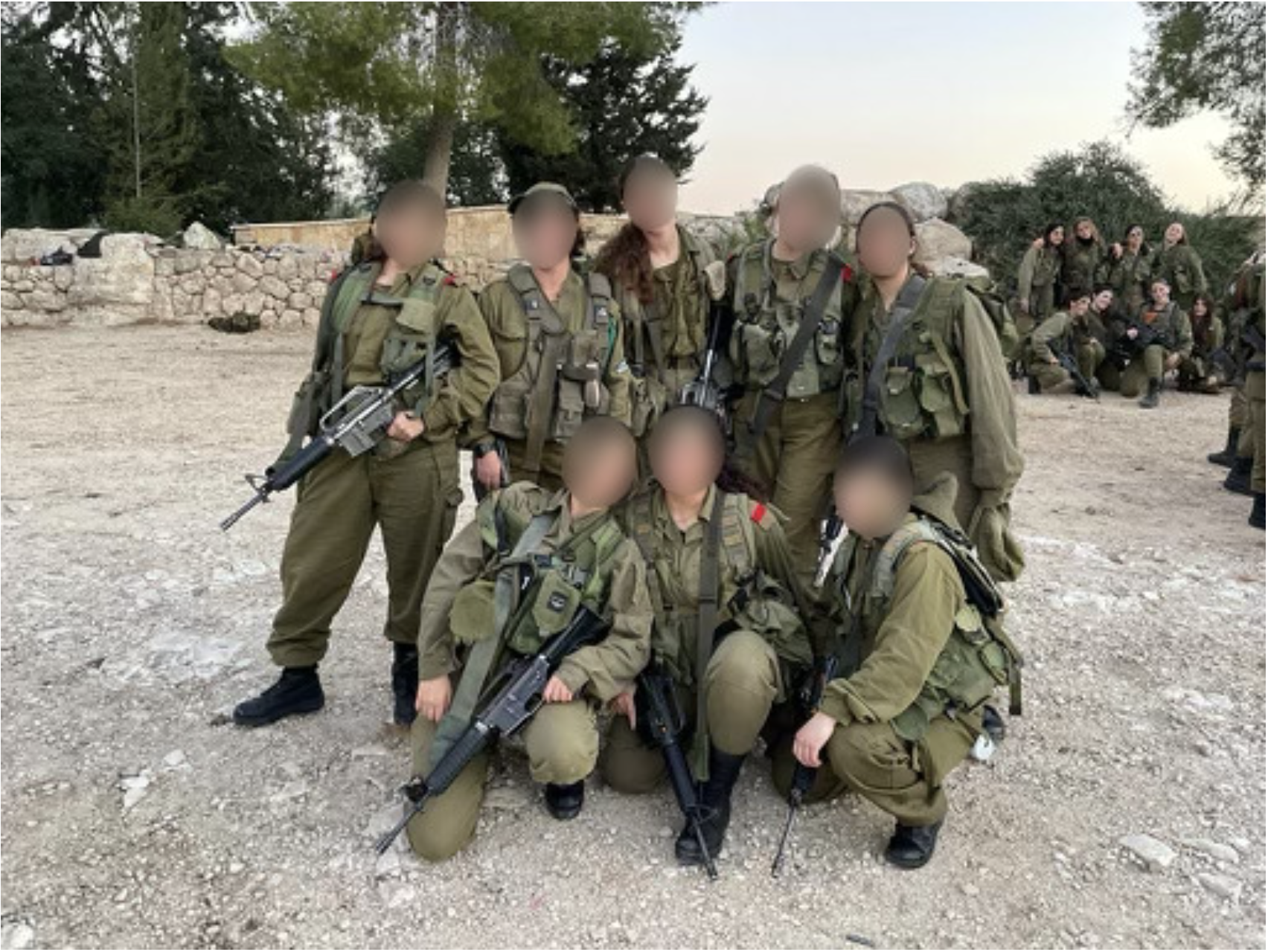
Carin, sister of Shalhevet students Ben ’24 and Maya, ’27, joined the Israeli army last year and is now serving as a search-and-rescue instructor. Her base, Zikim, was so close to the border that Gaza was visible from its watchtowers. The base is now “pretty much” destroyed, Carin said.
She said she vividly recalls the moments after she first heard Hamas had invaded her base, and the state of Israel.
“Everyone was just in a state of panic, and we just didn’t know what was going on,” Carin said in an interview Oct. 10. “Everyone was in like a question mark. And I was checking in with all my loved ones. Like, are you okay? Where are you right now?”
It was a stroke of luck that Carin was not on her base that day. She had just returned from a trip to Los Angeles on Thursday, and decided to spend Shabbat – the same Shabbat the invasion occurred – with her great aunt in Netanya.
“Luckily, I wasn’t there on Shabbat,” she said. “I wasn’t needed on Shabbat, and seven people died. Seven of our soldiers on base. And yeah – and today, I went to one of their funerals, it’s just all very hard.
“And it’s hard to even like, process because it comes so close to us. You know, and it’s become, it’s such a reality. And it’s such a hard reality to process. But, you know, we’re all in this together, all of his relatives together, everyone’s going through it together, people, everyone’s losing loved ones.”
Carin’s role entails training groups of soldiers in search and rescue, a new group every few months. She becomes a member of each unit while it is in training, and if it is called for a mission during that time, she would join them.
Since her current unit only began training a couple of weeks before Oct. 7 and has not yet been certified in search and rescue, she has not yet been called south.
However, she has been aiding in various search-and-rescue efforts virtually – via computer – from Netanya and is set to begin expedited training with her current unit soon.
In the meantime, Carin has been attending the funerals of those killed in the attacks.
She said she, as well as the friends and family of one of the soldiers from her base that had been killed, heard the explosions of rockets during his funeral in central Israel.
“Today at the funeral, there was a bunch of – you could hear the booms…” she said. “Some like far. I was in Modi’in, and you could hear the booms coming from Tel-Aviv – Herzliya area, of the Iron Dome intercepting them.”
“It was just sad that even in a funeral, you could hear – like it had to interrupt a literal funeral that we had to pause for a second, make sure everything was fine, and then continue,” she said. “Hearing the booms just – like, it just really reflected exactly what’s happening right now. And exactly what, sadly what, what the man had to die for.”
Some of the soldiers killed were defending other soldiers, Carin said. Those who survived hid on base for hours until the terrorists left.
“They’re very young, they’re in their 20s, early 20s. It’s devastating,” she said. “Seeing the families so heartbroken, and just hearing the stories and how much it could have been anyone.”
Because the initial attack was such a surprise and the IDF was not as prepared as they should have been, according to Carin, volunteer groups formed to fight off the terrorists in the kibbutzim and moshavim.
“I think that we weren’t as prepared as we should have been,” she said. “I wish that we were more ready. And I wish that we would have responded faster, and that we had more soldiers on duty that could have responded to everything that happened. It’s really, really devastating.”
She said she is finding it hard to come to terms with what had happened.
“It comes so close to us,” Carin said. “You know, and it becomes – it’s such a reality. And it’s such a hard reality to process.”
The unexpectedness of the war played itself out for David B. when he became a commander, but also because he had not yet finished basic training when he was promoted. Certain parts were sped up to accommodate for the circumstances.
“It’s a really unprecedented time,” said David in a telephone interview Oct. 10 from his post. “I was supposed to have my swearing-in ceremony at the Kotel tomorrow – obviously that’s not happening. And we were only to get our pakalim, which is our special load-outs I guess, a month from now.
“And obviously because of unforeseen circumstances they had to speed up our training, so we got our load-outs yesterday. I got chosen to be mefaked chuliyah” – a squad commander – “and also to be a sharpshooter, a kala.”
His younger brother Ari – the youngest of three, the oldest being Yoni, 23 – talks to David by phone for about five minutes every day. David is classified as a lone soldier since his immediate family is all in the U.S., so he is able to call his family for around 30 minutes at a time. Ari usually talks to him midday Los Angeles time.
“It’s something truly special that he calls every day,” Ari said. “He wants to stay connected. He wants to talk to us, tell us about the army, and he told me lots of things… I’m very close to him, so he always stays in touch… he’s always connected and we always talk.”
Ari’s family has a history of military service. Ari’s father and grandfather were both in the IDF Golani Brigade, an elite infantry unit, and his grandfather on his mother’s side was a soldier in the U.S. Army. Ari hopes to also join the Israeli army and become a third-generation Golani.
“It’s something big for us, for him to be a commander,” Ari said of David. “We just come from a long line of wanting to serve for our country.”
Ari was confused at first as to why David was chosen to be a commander, as his basic training was not yet finished.
“But I think that the army really saw something in him,” he said.
David was attending Columbia University after graduating from Milken Community School in 2020, and decided to take a break to join the IDF. He only told his parents of his plans this past June, before joining his unit for training in July.
“That this kid from Los Angeles wanted to take a break from college to be in the army,” said Ari. “I think it really says something about him that made them most likely want to make him a commander. They really saw something in him.”
Due to his brother’s service, the deep bond Ari already had to the Jewish state was transformed – both positively and terrifyingly, he said.
“My connection to the State of Israel, to the land, to the people – it’s become strengthened,” Ari said. Now, he said, “the feeling has 100% changed. I feel much more proud. But there’s a scared, frightened aspect of it too, now.
“I see my mom, it’s hard for her to sleep even.”
As she is from Los Angeles, Rachel L. was fairly confident the boom that morning was an earthquake. It was only when she woke up later and started watching the news that she realized what was going on.
She was called back to the Spokesperson’s Unit, where she had worked in the initial years of her service, starting the next day, Oct. 8.
Before her Shalhevet senior Poland–Israel trip, Rachel had never been to Israel. She went back during her junior year at USC, volunteering at an army base in 2014. She decided to make aliyah and join the army after she graduated from USC in 2017.
The Spokesperson’s Unit is the communications division to national and international audiences through the media. Rachel stayed on in her same position after her mandatory service ended, becoming a civilian employee. Her title, beginning two years into her service, was Creative Director of the Video Department in International Social Media.
After leaving the IDF, Rachel was working in marketing for a company called Lumen, but for now she has resumed her old army job of making English-language videos that are translated into Spanish and French and sent out on social media platforms.
When she was first serving, Rachel’s videos worked to educate an international audience about who the soldiers in the IDF were and what the army does. Now, her department has a key role in what she called “the digital war.”
“It’s a phrase that I really believe,” Rachel said in a telephone interview Oct. 10 from her home in Tel Aviv. “We’re fighting the digital war, or doing everything we can to write the narrative of what’s going on and who Hamas is. Basically giving people the digital tools, the material, to share with the rest of the world – who our enemies are, what they say, what they’re doing and why Israel does what it does in response.”
Another part of her job has been watching all the video documentation Hamas itself releases of the terror they are inflicting on Israeli citizens.
“The only way that I can watch it is with a complete emotional disassociation and just denial that it’s real,” Rachel said.
The Hamas videos are so graphic and disturbing that Head of School Rabbi David Block warned students of being careful of what they watched online at a school-wide assembly Oct. 10, the first day back from Sukkot break.
But it helps Rachel to know that she is working for her country and being productive in the war effort.
“There’s also a huge sense of purpose and meaning and we’re all there to do what we’re good at,” Rachel said. “We all are incredibly proud and feel a sense of why we need to be there.”
Other alumni who are actively serving were not able to speak to the Boiling Point personally but had family members who could. Noah R. ‘16, who finished his service in the Kfir Brigade in 2019, has not been called back to serve. But his brother, Saul ’11, was called up on Oct. 7, the morning of the first attacks.
“He’s in the south of Israel but I don’t know exactly where, he hasn’t told me,” Noah said. “He was on some kibbutzim for a little bit. Now, I don’t know where he is. I know that he also doesn’t feel comfortable saying so over the phone. I think in case anyone’s listening or reading his texts.”
Adam H. ’22 is also serving. His mother, Rina, does not know where her son is located either.
“We don’t actually know anything because they’re not allowed to tell us anything,” Rina said in an Oct. 15 phone interview.
“We know his base is in the south, and I don’t know what he’s going to be doing or when he’s going to be doing it. He’s a marksman, that much I know,” which means he is a gunman.
Adam joined the IDF in December 2022, and was still in basic training when the war broke out.
Rina said Adam “understands the war that needs to be fought.”
“They’re ground forces, so they have to go and fight,” she said. “It’s not fair, but it needs to be fought.”
Noah said in the first days, Saul was in shock and angry at the Israeli government.
“I think he’s been going through a wave of emotions,” Noah said. “At this point, his morale is pretty high… He feels like what he’s doing is important.”
Noah helped raise $15,000 to buy equipment and supplies for Saul’s unit. He calls and texts his brother whenever he can.
“I just tell him I love him,” Noah sail. “I’m nervous for him. And I want him to be safe… I’m terrified. I love my brother a lot. And I just hope that he’ll be safe.”
Another 2022 Shalhevet grad who joined the IDF last May is still in training. Her commander asked that she be identified only by one of her initials — T. — because she works in intelligence.
T.’s base is near Jerusalem, and though she “strangely” feels safer in Israel than she would living anywhere else, she said. But she said she’s also become more alert and aware of her surroundings.
“My thought process is that there’s nowhere else that I’d rather be,” said T. “I feel so incredibly safe being here with my community, being in my country with my people. And I think that if I were anywhere else in the world – if I were in LA, or if I were anywhere else – I truly would have this constant uneasiness. And I would just want to be here.”
Staff writer Caroline Kboudi contributed to this story.
This story was published in The Boiling Point on Nov. 22, 2023.
She’s also encouraged by what she’s seen on social media of Shalhevet’s activities in support of Israel’s war effort.
“What I’ve been seeing on social media from our community, it’s beautiful,” T. said. “Like the rallies and the protests and the raising money and the donations. And this raising awareness and standing up for us and calling up people who aren’t standing up for us.
“It’s really just beautiful to see. And it’s beautiful to see that, finally, we’re all one side regarding Israel.”
Both T. and Carin spoke about the beauty of the Jewish people coming together and supporting one another and Israel. But while T. said the war “might take a long time,” Carin tried to be optimistic.
“I really hope that all of this isn’t going to take more than a week,” Carin said on Oct.10. “I hope that after next week it’ll already be towards the end. But if not then we gotta do what we gotta do you know?”
Boiling Point Staff Writer Caroline Kboudi contributed to this story.
This story, which tied for First Place in the 2024 Jewish Scholastic Journalism Awards News and Feature Reporting on Current Events Involving Israel category, was originally published in The Boiling Point of Shalhevet High school on Nov. 22, 2023.
